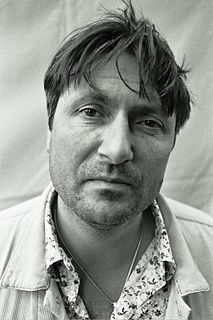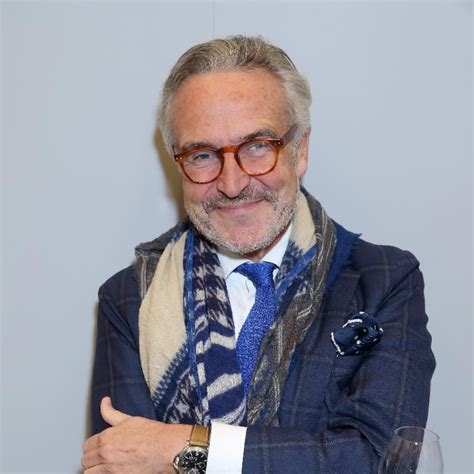A Quote by Simon Armitage
I intend 'Dämmerung' to be an ironic meditation on the financial rewards of poetry and a tragicomic lament on the passing of time and the changes in literary taste. The other poets mentioned are my poetic cohort from the U.K. I wrote the piece in situ, as it were, while making a television documentary about World War I in Germany.
Related Quotes
I don't know that I had a sense that there was such a thing as "the poetry world" in the 1960s and early 70s. Maybe poets did, but for me as an onlooker and reader of poetry, poetry felt like it was part of a larger literary world. I mean, even the phrase "the poetry world" reflects a sort of balkanization of American literary and artistic life that has to some extent happened since then.
One can say that the disaffection is still a lingering naiveté about, not the place of poetry in the world, but - how to say this - the moral and intellectual presence of poets in the world. And while this may seem an old conversation to many poets who roll their eyes and say, "Here we go again about the function of poetry," I think that conversation, about poetry as an engaged art in a world that is full of regression or still lacking in progress, is still really not well-developed. It's almost an avoided conversation.
My biggest poetic influences are probably 20th-century British and Irish poets. So I suppose I'm always listening for the music I associate with that poetry, the telling images, the brevity. I want to hear it in my own work as well as in the poetry I read. However, I think I'm generally more forgiving of other poets than myself.
The maiden Olympics had more to protest about than mere war, though. Central to its ethos was a rejection of two establishments the political one, certainly, but also that of the wider poetry world itself. It changed poetry for ever in the UK, ... It led to readings all over the country. You suddenly got more women reading and publishing poems, as well as gay guys and poets from all over the world. Until that time, published poetry had been very university-based white, male, middle-class. We were trying to break poetry out of its academic confines.
I would argue, for perspective's sake, that the arc of a really literary work is precisely that it both intensely reflects, and simultaneously transcends the conditions of its making. I would say that is the difference between literature and other kinds of writing. That is what the literary is - it ultimately doesn't matter what his circumstances were. And the thing that you were just saying about being sympathetic to Brontë and the fact that she could only write what she wrote when she wrote it... that's true. But look at that novel, which means so much to so many people.
Everyone has taste, yet it is more of a taboo subject than sex or money. The reason for this is simple: claims about your attitudes to or achievements in the carnal and financial arenas can be disputed only by your lover and your financial advisers, whereas by making statements about your taste you expose body and soul to terrible scrutiny. Taste is a merciless betrayer of social and cultural attitudes. Thus, while anybody will tell you as much (and perhaps more than) you want to know about their triumphs in bed and at the bank, it is taste that gets people's nerves tingling.
I've noticed that there can be a visceral reaction to strong statements about poetry, as if anyone who has an opinion and expresses it is shutting people down. It's funny to see that expressed, and then to go back and read poetic statements by the great poets of the past: they are full of a passionate conviction! It is clearly possible to express strong feelings about poetry while also defending the absolute right of myriad approaches.
When I first started making films 30 years ago, people would comment that I was a woman. But strangely, when I was in television, no one ever mentioned that I was a woman. Maybe it was because television and film were different. There were more women working in television than men. There was no split in terms of work - everyone was considered equal
It's difficult to put your own bare ass out on the limb every time you sit down to write a poem. But that's really sort of the ideal. Because if we don't discover something about ourselves and our world in the making of a poem, chances are it's not going to be a very good poem. So what I'm saying is that a lot of our best poets could be better poets if they wrote less and risked more in what they do.
America felt victorious and generous after World War II. They had also learned from the mistakes after World War I when they imposed punishment on Germany. What became of Germany? A Nazi dictatorship which threatened the world. Today's Germany doesn't feel as prosperous and generous as America then. But actually, Germany still is very prosperous.







































